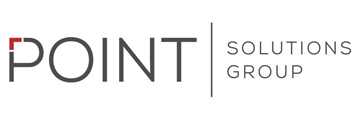Drive Revenue and New Business Offerings with Security Improvements
Drive Revenue and New Business Offerings with Security Improvements
One of the most unfortunate misconceptions about data security is that many businesses view it as a burden instead of an opportunity. They look at policy, procedure, and security as a cost of doing business rather than a strategic asset that can drive business and grow revenue exponentially. But they’re so very wrong.
Investing in technology and improved security is a fundamental growth mechanism for your company – expanding your opportunities to work with current clients and opening doors you never dreamed possible. The better your security posture, the more nimble you can be in cultivating new markets and new revenue streams. It’s that simple.
From a business to business standpoint, companies are increasingly required to have high-level data and infrastructure security in place before they can even be considered for contracts with major clients. Without security standards in place, you won’t be invited to the table. You won’t even be invited to get in line to get to the table. Fortune 500/1000 companies, basically any regulated industry or any large retailer or supplier won’t give you the time of day if you don’t have your security practices up to snuff.
But rather than viewing this as a burden to bear, savvy companies see it as the golden opportunity it truly is. If you make an investment in getting your security standards in place, you position yourself to drive revenue, grow your business and leave your competition in the dust. Rather than being the sad sap in the corner wearing an outfit five years out of fashion, you’ll be the star of the party, the one getting asked to dance and better able to do the asking.
Better Data Security Means Better Market Availability and Penetration
Data governance regulations are on the rise, and their impacts are far-reaching. No matter your industry, making sure your data is secure is no longer optional. But too many companies don’t have adequate standards in place, severely limiting how far they can grow their business.
Proactively setting your business up to meet compliance to standards such as HIPAA, GDPR, NIST or CMMC grants your salespeople a license to hunt bigger game. For software as a service companies especially, getting your security infrastructure in place can allow you to jump from contracts with other small businesses to going after multi-multi-million dollar clients.
Now, it probably won’t make sense for your business to go from zero to security hero. It’s costly, and we get that. Instead, we recommend starting with a risk assessment to prioritize the security practices that have the highest value. Get a sense of where you’re at in relation to where you’re going, and start with the items that will have the highest impact.
Doing this proactively instead of in response to a request, however, will likely help you look at market availability and penetration in ways you haven’t before. Not only might you see opportunities in new markets, but it also might expand your current work with clients. For example, if you have a piece of software deployed in a specific business unit but not others (because the others have higher security standards), you might be able to expand within existing accounts after just a few changes to access control or authentication practices.
Cybersecurity Documentation Opens Doors
Again, having high level standards in place will open doors that would otherwise remain firmly shut. Expectations from major organizations are increasingly making security a priority. Even if data security standards are not necessarily a legal requirement, corporations will provide vendors with audit-esque documents to complete in order to obtain new contracts. There’s an expectation for a premium level of security from vendors, even two-levels deep.
If a company like Charles Schwab works with a professional services provider, and that company works with a sub-contractor, there’s a trickle down effect – requiring all parties to meet appropriate standards. This kind of downmarket trend means that second and third tier service providers still need to have high-level protocols in place and be able to prove it.
Getting your security infrastructure in place to go after major contracts means not only meeting appropriate standards but also having the documentation to show for it. Strategic planning around your company’s data security will save you time and money in the long run if you ensure that you’re both meeting standards and easily able to provide the necessary evidence.
Think of Security as a Benefit
Shifting your organization’s mindset around security from a necessary cost to a strategic investment will benefit everyone in the long term. Two-factor authentication might be annoying for end-users, but it keeps data secure. And that kind of security is absolutely the expectation for companies wanting to do business with bigger and bigger fish in the global economy sea. It might not seem obvious that having a password policy and access management is a means to revenue growth, but it is. The more secure your company’s and your customers’ data, the more trustworthy, reliable and qualified you’ll be for clients.

